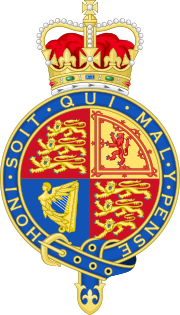Guibord case
| Guibord case | |
|---|---|
 |
|
| Court | Judicial Committee of the Privy Council |
| Full case name | Brown v Les Curé et Marguilliers de l'Œuvre et de la Fabrique de la Paroisse de Montréal |
| Decided | 21 November 1874 |
| Citation(s) | (1874), L.R. 6 P.C. 157, [1874] UKPC 70 (P.C.) |
| Case history | |
| Appealed from | Quebec Court of Queen's Bench (Appeal Side) |
| Court membership | |
| Judges sitting |
Lord Selborne Sir James W. Colvile Sir Robert J. Phillimore Sir Barnes Peacock Sir Montague E. Smith Sir Robert P. Collier |
| Case opinions | |
| Decision by | Sir Robert J. Phillimore |
| Keywords | |
| Church and State | |
Brown v Curé et Marguilliers de l'Œuvre et Fabrique d Notre Dame de Montréal [1874] UKPC 70, LR 6 PC 157, better known as the Guibord case, was a famous decision in 1874 by the Judicial Committee of the Privy Council in an early Canadian legal dispute over the relationship between church and state.
The question was whether the church officials of the Parish of Montréal could refuse to bury a deceased member of the Church because of his political beliefs. Joseph Guibord had been a member of the Institut Canadien de Montréal, an association dedicated to the principles of liberalism. The Institut was at odds with the Roman Catholic church, at that time very powerful in Quebec and very conservative. When he died, the church officials of the Parish of Montréal refused to allow his widow, Henriette Brown, to have his remains buried in the section of the Côte des Neiges Cemetery reserved for Roman Catholics.
Brown brought a petition in the Quebec courts to require the church officials to allow her to bury her husband in the cemetery. The case was ultimately decided by the Judicial Committee, at that time the court of last resort for Canada within the British Empire. The Judicial Committee ruled that the church officials had to allow Guibord's remains to be buried in the Roman Catholic section of the cemetery, although without full religious rites. The case caused great political and religious controversy in Quebec.
The case centred on a man named Joseph Guibord, a member of the Institut Canadien. The Institut was a liberal association with a public library and debating room for literary and scientific discussions. The views of its members, who tended to support the Rouges in Quebec politics, brought them into conflict with the Roman Catholic Church, which at that time had significant influence in Quebec society and with the Quebec government. Eventually, the Bishop of Montreal, Ignace Bourget, issued a pastoral letter forbidding membership in the Institut, and stating that no absolution was possible for member, "même à l'article de la mort."
...
Wikipedia
